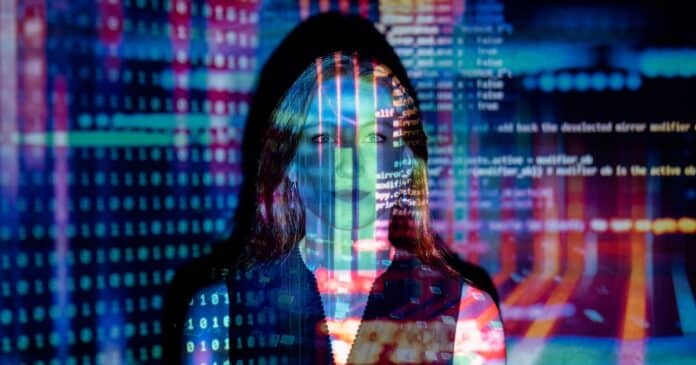The current concept of artificial intelligence has been consolidated for at least two decades, but only in the last few years has it been directly affecting people’s lives and generating deeper discussions on the topic.
One of the inevitable problems with the dispersion of the topic is the emergence of several doubts about what an AI can or cannot do and what its potential is for the future.
Do you want to understand more about this turning point in our personal and in the success of companies? Do you want to clarify once and for all the bases of technology and where it can take us?
So, see below the answers to the main questions about artificial intelligence. Check out!
What is artificial intelligence?
Artificial intelligence is a very comprehensive term in computer science, which gains even more meaning and meaning when taken to cultural and social contexts around the planet. It can be defined as a technology, a tool or even a field of study.
However, when reducing the concept to its most primordial foundations, we can say that AI is any computational code capable of imitating human intelligence in certain aspects, such as:
- ability to define own intentions and seek actions that achieve these goals;
- ability to interpret results and judge them according to your objective;
- ability to learn, that is, generate useful knowledge for future actions based on previous observation;
- ability to perform tasks and maintain conversational interactions close to human using the previous items.
These are just a few examples of what artificial intelligence can constitute, but they can go much further than that. After all, in our own biology we have difficulty defining what intelligence is and how many of its types there are: logical, calculating, emotional intelligence, etc.
Therefore, in a general technology context, we can conclude that an AI is any program capable of imitating any of these types of human thinking, with enough autonomy to reach complex results without the need for our direct interaction.
When did artificial intelligence appear and who created it?
It is difficult to define when artificial intelligence emerged or whether it has a unique origin, since the very idea of constructs or machines imitating human behavior is almost as old as civilization.
We’ve seen this notion ingrained in our culture for a long time through books and films, but its current iteration differs greatly from most of these future proposals.
AI as we know it today emerged alongside computing. Since the first processors were developed, professionals in the field have tried to create algorithms capable of “thinking for themselves”, that is, starting from basic commands to explore, learn and decide their own path.
And if the first computers don’t take long to turn 100 years old. Why is artificial intelligence only now emerging in an efficient and widely usable way? That’s what we’ll talk about next.
How does artificial intelligence work?
The recent growth of AIs in our personal and professional lives has to do with another recent technological concept: the big data. Finally, processors and algorithms have access to sufficient volumes of data to perform their own analyzes and draw reliable conclusions in dilemmas they are posed to.
The most classic model to understand this is Deep Blue, a computer developed by IBM that made history by being the first machine capable of defeating a chess champion.
The secret of all modern AI is represented in a simple way in Deep Blue. The supercomputer was fed a large amount of data on more than 4,000 positions and 700,000 high-level games and configured to use the information based on the rules of chess and its purpose to win.
From there, the machine searched for and tested millions of possibilities per second, with negative and positive reinforcements to learn the best approach in countless situations. In this way. The movement of pieces that guaranteed the best chances of victory was decided.
Currently, most artificial intelligence works in the same way: an algorithm with a series of pre defined rules is given a purpose and uses available data to test, analyze and decide on the best answer.
The difference, of course, is that both data processing and storage capacity have been growing exponentially since then. The result is increasingly capable AIs, to the point that they will soon become indistinguishable (and even superior) to a human mind in certain activities.
How can it use?
From the examples we just gave, you can already have an idea about what changes AI brings to our lives. But how about extrapolating even further? See how intelligence will be part of the routine in the coming years.
In our personal lives
AIs are now present in our personal lives. Algorithms help us decide what to buy, what to watch and even who to meet.
This partnership, as we can call it, should increase significantly over time. Especially when combined with wearables. Internet of Things devices that monitor various aspects of our lives.
Artificial intelligence can use to manage our health, with personalized treatments and habits. It will also help with financial control and our physical and mental organization.
It will also be a source of new interactive experiences in culture and entertainment, making the fun of the future more personalized than it is now.
In companies
Companies are the ones most interested today in invest in AIs for the results they already achieve with technology. In this sense, artificial intelligence is, mainly, an ally in business data processing and decision making.
Data-based management, as it is known, helps C-Level professionals with increasingly deeper access to market information and customer profiles. Automated models make projections in different market scenarios and point out paths with maximum gain and minimum risk.
Recently, AI has been penetrating even more into business routines. Especially in processes that increase productivity with intelligent automation of complex steps. A tool that does not replace, but enhances human capacity.

